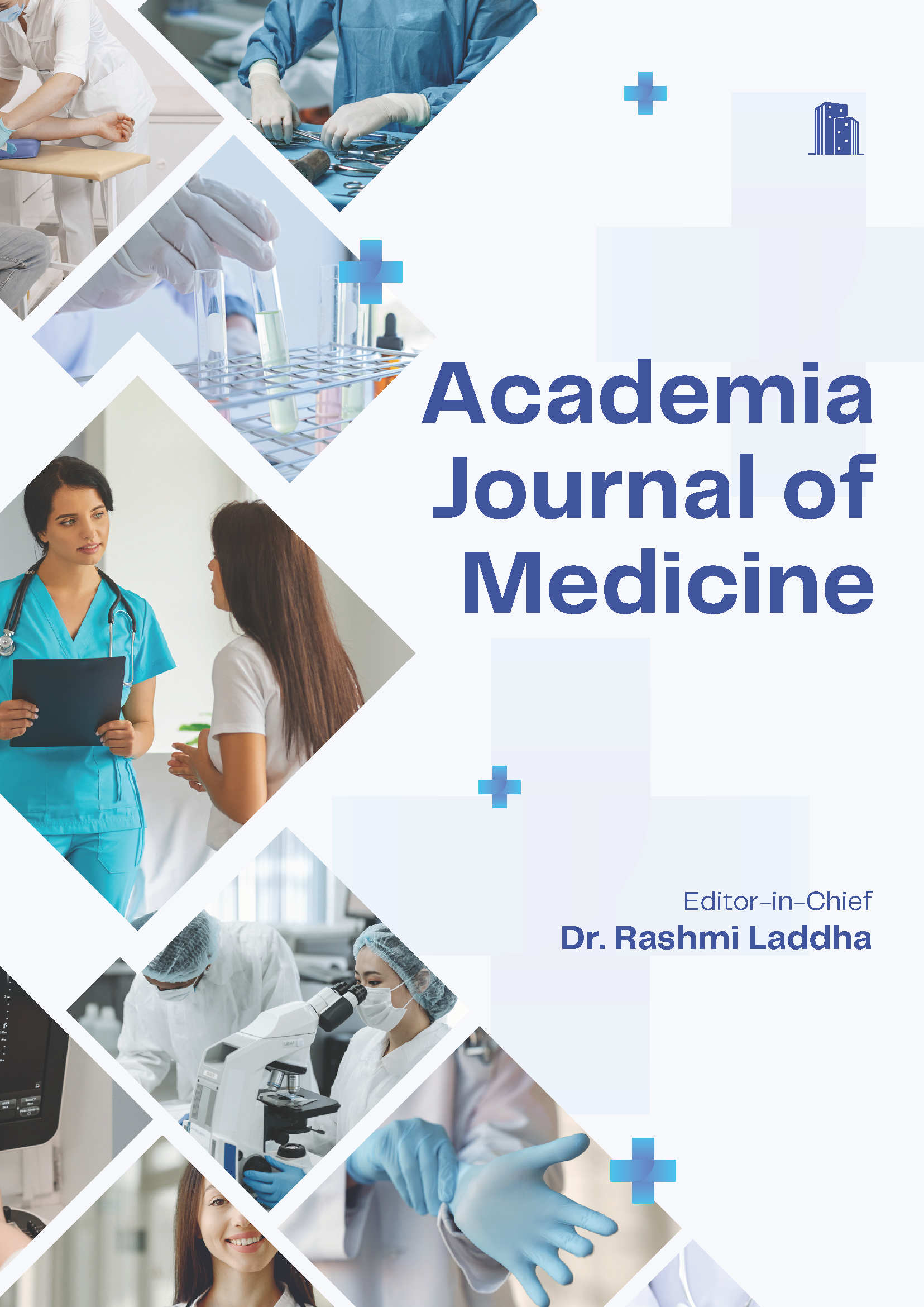The Association between Serum Lipid Profile and Nephropathy in Type 2 Diabetes Mellitus Patients
DOI:
https://doi.org/10.48165/vm62zh74Keywords:
Hypercholesterolemia, Nephropathy and Lipid ProfileAbstract
Background: The prevalence of hypercholesterolemia (TC>200md/dl) alone, as reported tin numerous studies across India, has varied from about 20% to 35%. However, what is more important is the pattern of dyslipidemia. When compared with the western populations, Indians and migrant Asian Indians tend to have higher triglycriede levels and lower HDL-C levels. Subjects and Methods: This was a comparative study conducted among 100 cases. A pre-structural proforma will be used to collect baseline date detailed clinical history with clinical examination and relevant investigation will be done on participating individuals. Results: There was correlation between lipid levels and duration of diabetes for all lipid fractions which were significant. Conclusion: Correlation coefficient between nephropathy and lipid profile was found to be significant.
References
1. K.G. Taylor, A. D. Wright, t.J. N. Carter. A. J. Valente. S.A. Betts, and K. A. Matthews. Diabetoliga (1981) 20:535-539 High Density Lipoprotein cholesterol and Apolipoprotein A-1 Levels at Diagnosis in Patients with Non-Insulin Dependent Diabetes.
2. Yusuf S.,Islam S., Chow C.K Use of secondary prevention drugs for cardiovascular disease in the community in high-income, middle income, and low-income countries (the pure study):a prospective epidemiological survey. Lancet. 2011;378:1231-1243
3. Misra A, KhuranaL.Obesity-related non-communicable disease: south Asians vs white Caucasians Int J Obes(Lond) 2011;35:167-187. 4. Mckeigue P.M Shah B., Marmot M.G. Relation of central obesity and insulin resistance with high diabetes and cardiovascular risk in south Asians. Lancet.1991;337:382-386.
5. Chambers J.C., Eda S., Bassett P. C-reactive protein, insulin resistance, central obesity, and coronary heart kingdom disease risk in Indian Asians from the united compared with European whites. Circulation. 2001;104:145-150.
6. Forouhi N.G., Sattar N., McKeigue P. M. Relation of c-reactive pratien to body fat distribution and features of the metabolic syndromic in Europeans and south Asians Int J ObesRelatMetabDisord. 2001;25:1327-1331.
7. Jisieike- Onuigbo NN, Unuigbe EI, Oguejiofor CO. Dyslipidemias in ype 2 diabetes mellitus patients in Nnewi south-East Nigeria. Ann
Afr Ned, 2011; 10(4);285-9. microvascular complications implications for therapy. Am J Cardiovase: Drugs. 2003;3(5):325-38. 8. Chehade JM, Gladysz M, Mooradian AD. Dyslipidemia in type 2 diabetes: prevalence, pathophysiology, and management, Drugs. 2013;73(4):327-39.
9. Chandalia M., mohan V., Adams-Huet B., Deep R., Abate N. Ethnic Difference in sex gap in high-density lipoprotein cholesterol between Asian Indian and whites. J investing med. 2002;324 6356- 580.
10. Whincup P>H., Gilg J.A., PapacostaO.Early evidence of ethnic differences in cardiovascular risk: cross sectional comparison of British south Asian and white children .Bmj. 2002;324: 635-635.
11. Ehtisham S., Crabtree N., Clark P., Shaw N., Barrett T., Ethnic differences in insulin resistance and body composition in united kingdom adolescents. J ClinEndocrinolMetab. 2005;90:3963-3969.
12. Hughes L.O.,Wojciechowski A.P., Raftery E.B. Relationship between plasma cholesterol and coronary artery disease in Asians. Atherosclerosis.1990;83:15-20.

